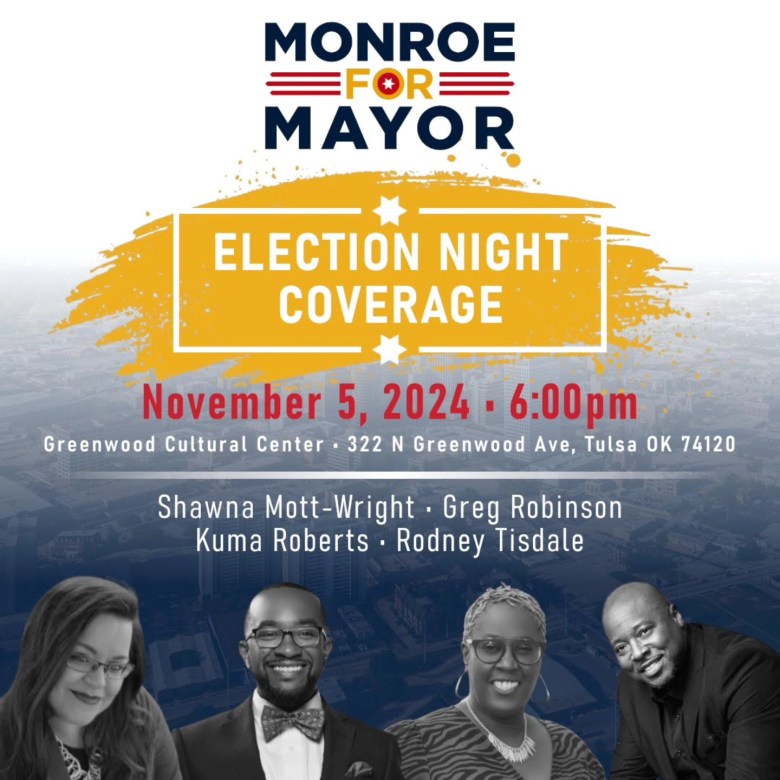|
Listen to this article here
Getting your Trinity Audio player ready...
|
More than a century has passed since the Greenwood District in Tulsa—a once-thriving, all-Black community known as “Black Wall Street”—was decimated by a violent White mob in the 1921 Tulsa Race Massacre. Today, Tulsa stands on the brink of a historic moment, poised to elect Monroe Nichols as its first Black mayor.
Electing Its First Black Mayor Could Mark a Turning Point for Equity and Legacy in Greenwood
Once a vibrant and prosperous, Greenwood stood as a beacon of Black resilience and economic independence. In recent years, calls for justice and acknowledgment of this tragedy have intensified, both locally and nationally, with many demanding reparations and efforts to restore what was lost. Now, Tulsa finds itself at a pivotal juncture, ready to make history again, as the city is seemingly prepared to turn the page and look past race.
Tulsa’s population is now more diverse than it was a century ago, with a growing awareness of the impact that systemic inequality has on communities of color. Nichols’ campaign underscores the importance of equity, focusing on improving public safety, addressing homelessness, enhancing education, and revitalizing neighborhoods like Greenwood, which, though significantly changed since 1921, still holds deep symbolic weight for Tulsa’s Black residents.
For many, Nichols represents not just a candidate but a shift in Tulsa’s narrative—a chance to see leadership that reflects the city’s diversity and acknowledges the legacy of Black Wall Street.
Nichols and Harris Poised to Transform Tulsa and the Nation with Historic Representation and Vision
This election carries added significance as it coincides with the national presidential race, where Kamala Harris, currently the first Black woman and person of South Asian descent to serve as Vice President, is positioned to become the nation’s first woman president. The simultaneous rise of Nichols and Harris signals a potential turning point in both Tulsa and the United States, reflecting a broader cultural shift toward greater representation and leadership that more accurately mirrors the country’s demographics.
Electing Nichols marks a profound step for Tulsa in healing the scars of 1921, offering a future that celebrates Black voices and leadership. The city stands ready to shape a new legacy—one rooted in resilience, remembrance, and the promise of meaningful change.
Monroe Nichols Election Night Watch Party and Election Coverage
Tonight, Tulsans of all backgrounds—diverse in color, faith, and economic standing—will come together at the Greenwood Cultural Center to celebrate what could be a historic night in Tulsa and the US. The event will also be live-streamed on the Monroe for Mayor, Tulsans for Monroe, and The Black Wall Street Times social media pages.



